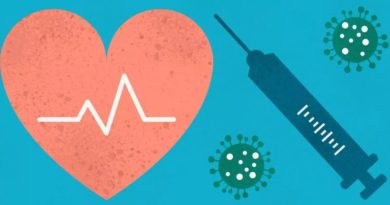Comment: Fighting anti-vax misinformation still worth effort

By Sarah Green Carmichael and Faye Flam / Bloomberg Opinion
Medical misinformation has never contributed to as many deaths as in the last 18 months. Recently released statistics show thousands of “excess” deaths concentrated among the U.S. states and counties with the lowest uptake of covid-19 vaccines; though the vaccines were free and available to everyone.
Uptake has been suppressed in those areas because a significant chunk of the public has remained intensely skeptical of the covid vaccines; especially those using mRNA technology, which has been in development for decades but never used until now. Among the rumors: that the vaccines change your DNA; cause infertility; or even kill you. None of these are based in fact.
The most widely circulated misinformation tends to exaggerate the vaccines’ side effects; for example, basing false claims that the vaccines cause infertility on real reports that some women observed temporary changes in their menstrual cycles.
Then there are wilder claims, such as those shared by the movie “Died Suddenly,” which was released Nov. 21 and has already been viewed more than 12 million times. It claims falsely that the covid vaccines have rapidly caused fatal blood clots and cancers.
Both kinds of fears can be debunked with data. For example, if vaccines were killing people, excess mortality would be concentrated in the most vaccinated regions, and should show a spike after the peak of the 2021 vaccination campaign, when 3 million people a day were getting shots. Instead, the data show excess deaths concentrated in the least vaccinated areas, and during times when covid cases were high; not when the vaccination rate was high.
The most serious documented vaccine side effect is myocarditis. That side effect is serious, but very rare; affecting between 0.3 to 5 people per 100,000 people vaccinated. While 23 percent of those had to go to the ICU, no one died.
Paul Offit has been battling the anti-vaccine movement for more than 20 years as a physician and head of the Vaccine Education Center at the Children’s Hospital of Philadelphia. He told me he originally thought the anti-vaccine movement would die down with covid because the disease was so dangerous and the vaccines so good. “I thought this would really push the anti-vaccine movement to the sideline,” he said. “Quite the opposite; this was their fuel.”
What he didn’t anticipate, he said, was that people would be motivated by politics; by the sentiment that the government shouldn’t tell them what to do. In the past, anti-vaxxers were made up of a combination of those on the political right and the left, especially those who were opposed to anything they saw as artificial or genetically modified.
That’s changed. While there are some on the left who are skeptical of the covid vaccines, Republicans are much significantly less likely to have gotten the shot than Democrats. The counties that voted for Joe Biden in 2020 have higher vaccination rates than those that voted for Donald Trump. The Republican tendency toward vaccine-hesitancy is backed by data showing excess deaths were more than twice as high among Republicans than Democrats in Florida and Ohio after vaccines were made available.
Politics alone might not turn people against a life-saving vaccine, but it influences which information people see and believe; and scare stories about people dropping dead can’t be countered by vaccine cheerleading or the kind of soft information shown in the new Pfizer television commercial, showing happy people hugging and doing normal things.
Vaccine and booster campaigns should rely more on data and nuance. Instead, official channels have pushed an overly broad recommendation to promoting the new booster for everyone over the age of 5, something Offit says is not based on data. He hasn’t gotten the newest booster although he’s a member of the panel advising the FDA on vaccines. Offit sees the first booster as valuable — he’s gotten one himself — but additional boosters, he said, should really be recommended for older people or those suffering from conditions that might make the first three shots less effective.
Some might be forgiven for asking: Why does this still matter, if so many have already had covid and if most deaths are now occurring among the elderly vaccinated? Because some of these deaths may be preventable with higher booster uptake; only 31 percent of Americans over 65 have gotten the updated booster.
This is not to undersell the initial vaccines. For most of us, they are still doing a good job of keeping us out of the hospital. And keeping us alive. That’s why the primary vaccine series would still be a good idea for the roughly 22 percent of Americans who have yet to get a single shot.
There’s a lot we still don’t know about covid. It’s not clear how long natural immunity lasts after a covid infection or whether natural immunity is as protective as vaccination. It’s not even clear how many people have had covid; estimates of the total number of U.S. infections remain elusive, ranging from a low of 42 percent to a high of 94 percent. But one thing is clear: Many of the people who’ve died after covid vaccines and boosters became available should still be alive.
Sarah Green Carmichael is a Bloomberg Opinion editor. Previously, she was managing editor of ideas and commentary at Barron’s and an executive editor at Harvard Business Review, where she hosted “HBR IdeaCast.”
Faye Flam is a Bloomberg Opinion columnist covering science. She is host of the “Follow the Science” podcast.
Talk to us
<!–
–>


